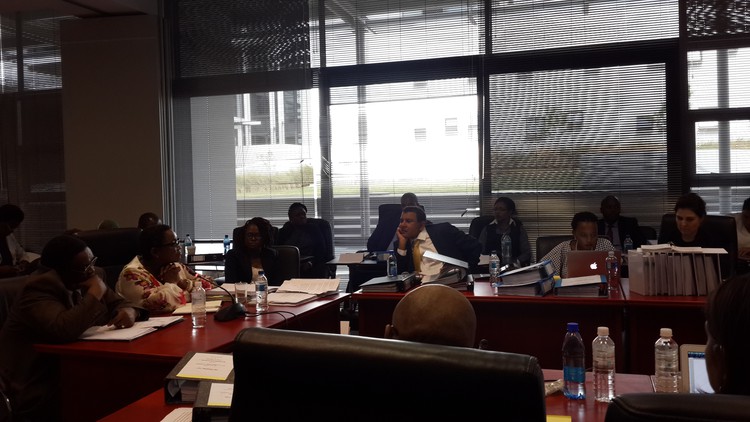Dlamini denies undermining SASSA’s work
Minister called to account for social grants crisis
Minister of Social Development Bathabile Dlamini has denied that the work streams she established undermined the work of South African Social Security Agency (SASSA) officials.
In a letter sent to the Constitutional Court on 3 April 2017, former SASSA Chief Executive Officer Thokozani Magwaza accused Dlamini of establishing “parallel decision making and communications processes that bypassed SASSA officials”.
In June last year, the Constitutional Court ordered an inquiry into Dlamini’s role in the social grant crisis. The five-day inquiry began on Monday at the Office of the Chief Justice in Midrand. Retired Judge Bernard Ngoepe chaired the procession.
Questioned by her advocate, Ishmael Semenya, on her reasons for establishing work streams, Dlamini said she was advised by the Ministerial Advisory Committee to establish work streams to assist SASSA in the rollout of social grant payments.
But, Dlamini said, the Ministerial Advisory Committee’s reports were “misleading”. She said the committee had made it seem as if the rollout of social grants through SASSA would be achievable within the given time frame. But she had realised in October 2016, through a report from the legal work stream, that it would not be possible to take over social grant payments by 1 April 2017.
Because of the urgency of the matter, Dlamini said, she asked the work streams to report to her directly. “My intention was to make sure that the work is being done. It did not mean they weren’t working with SASSA officials, in fact they did work together,” she said.
Dlamini said the SASSA executive management was aware of the work streams being established. She said SASSA was involved in the procurement process for work streams but no one ever mentioned that the work streams were hindering SASSA officials’ work.
Advocate Geoff Budlender, representing the Black Sash Trust and Freedom Under Law, said the National Treasury had found that the appointments of the work stream leaders were “irregular” and there was “no evidence” that the appointment of the work stream leaders was urgent, because proposals were received on 30 October 2015 and only seen by the adjudicating committee six months later.
When Budlender asked whether Dlamini agreed or disagreed with National Treasury’s finding, she said she disagreed and that the finding was “someone in National Treasury’s point of view”.
“There were a lot of things happening between October and April which delayed the process of procurement so it’s not that nothing was being done in that time”, Dlamini said.
Budlender also pointed out that Dlamini had selected specific people to head up the work streams, using her power as the minister to influence the appointment process.
He said, “You instructed SASSA as to who would be procured. What would you have said if SASSA said they found someone better qualified to do the job?”
Dlamini responded by saying she could only answer the question “based on reality” and in reality, no one had come to her with that suggestion.
Advocate Budlender then asked that the inquiry be adjourned for the day.
The inquiry continues on Tuesday morning.
© 2018 GroundUp. 
This article is licensed under a Creative Commons Attribution-NoDerivatives 4.0 International License.
You may republish this article, so long as you credit the authors and GroundUp, and do not change the text. Please include a link back to the original article.



